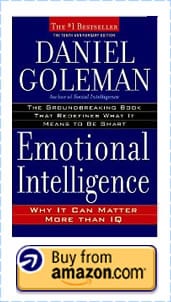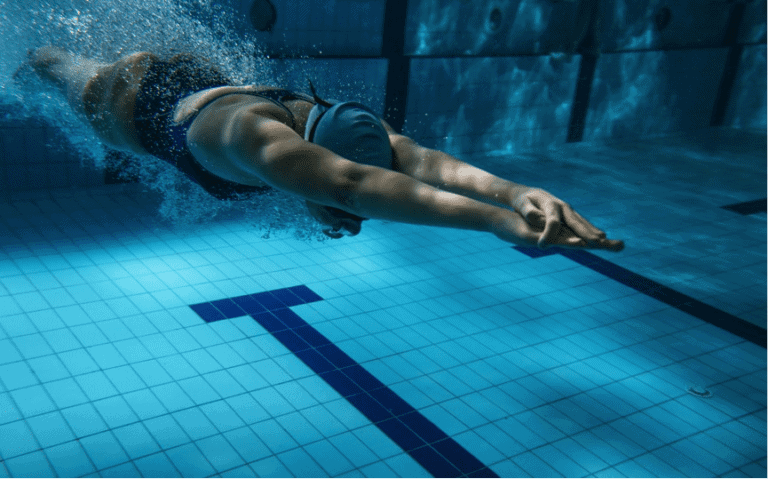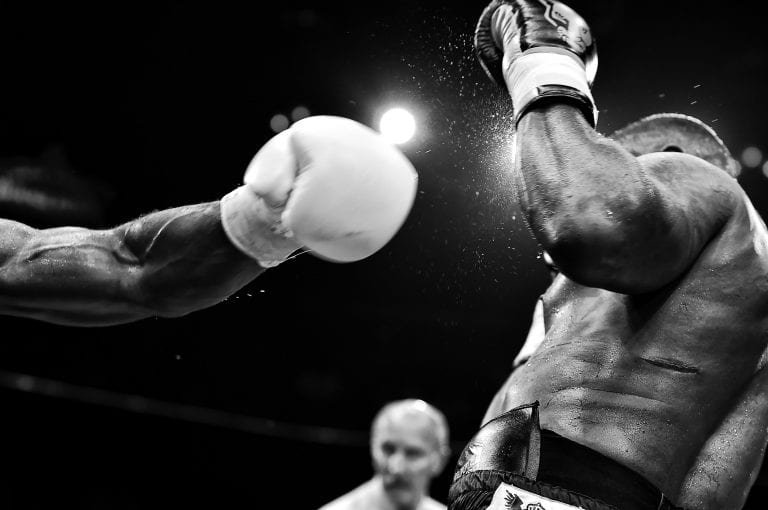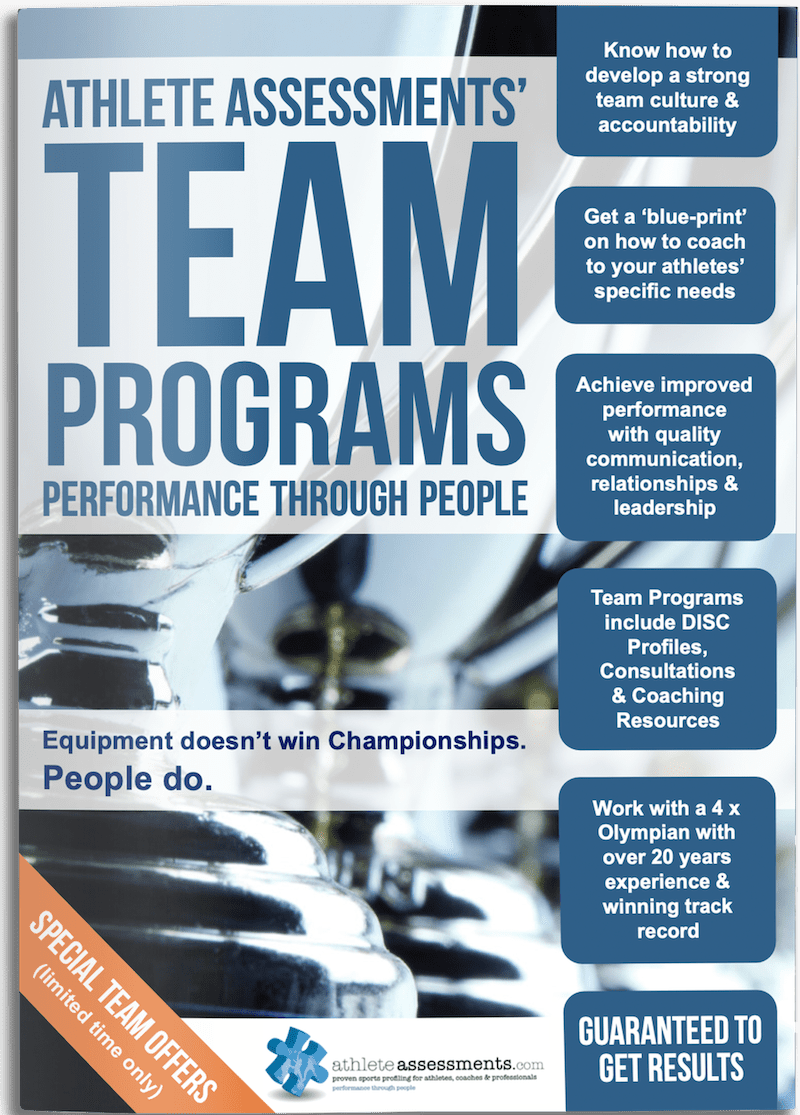Although emotional intelligence is still a relatively new term in sport, it is certainly not a new concept. For years we have marveled at how the great athletes are able to “switch themselves on” to create amazing performances with incredible consistency. We would describe them as being composed, mentally tough, having the right psychology, a great sports mind, emotionally controlled or simply determined or focused.
Today we recognize these athletes as having high levels of competency in the area of emotional intelligence.
The key to emotional intelligence in sports is the ability to control your emotions and create peak performance on demand. If only we could teach our athletes to do this consistently! But, what if we could? This article examines the theory and application of emotional intelligence in sport.
In a nutshell, Emotional Intelligence is the ability to identify, assess and manage the emotions of you, of others, and of groups.
Even just reading the definition you can start to understand the significance of this to sport…
Emotional Intelligence Defined
Essentially emotional intelligence is defined as:
The ability to recognize your own emotional state, that is how you are feeling.
Sense the emotions in others.
Knowing how to motivate yourself to create your best performance.
Build productive relationships with others.
Fundamental to understanding emotional intelligence is knowing that emotional intelligence is a competency based framework. What this means is that each of us already has a level of skill in emotional intelligence, it is just the degree of its development. It is the same as having different levels of skill in shooting a basketball from the 3 point line. Some have an excellent skill level, others have beginner level and there are numerous degrees in between.
What is most important, is knowing emotional intelligence is a skill and it can be developed.
It is not inherent in us; emotional intelligence can be taught, learnt and continually developed. Within the emotional intelligence framework, as described by Daniel Goleman, there are four quadrants.
Daniel Goleman’s 4 Quadrant Model of Emotional Intelligence
SELF-AWARENESS
Emotional Self-Awareness
Accurate Self Assessment
Self Confidence
SOCIAL AWARENESS
Empathy
Organizational Awareness
Service Orientation
SELF MANAGEMENT
Emotional Self Control
Transparency
Adaptability
Achievement Orientation
Initiative
Optimism
RELATIONSHIP MANAGEMENT
Influencing Others
Developing Others
Inspirational Leadership
Conflict Management
Teamwork / Collaboration
Change Catalyst
You can note that there is a total of 18 competencies. Global studies have shown that for leaders to be effective, that they must have high level competency in six core areas. Coaches are leaders and play a very critical role. It makes perfect sense to apply this leadership model to coaching effectiveness.
Emotional Intelligence Defined
- Emotional Self-Awareness (within the Self-Awareness Quadrant)
- Accurate Self Assessment (Self-Awareness)
- Self Confidence (Self-Awareness)
- Emotional Self Control (Self Management)
- Empathy (Social Awareness)
- Influencing Others (Relationship Management)
As you will note from the diagram above, half of the six most critical aspects of emotional intelligence in sport are within the Self-Awareness quadrant. Also, the other three quadrants depend on having a strong level of Self-Awareness as a prerequisite, further emphasizing the importance of this Self-Awareness quadrant.
It becomes very obvious for the necessity of self-awareness in sport, whether you are a coach, athlete, referee, umpire or in sports management. And this is why we believe so strongly in the use of self-awareness tools such as the Athlete Assessments CoachDISC and AthleteDISC profiles.
Self-Awareness is the Most Critical Aspect of Emotional Intelligence in Sport
Self-awareness is the cornerstone of further development of emotional intelligence in sports. It is a function of the degree to which you understand yourself. Self-awareness encompasses knowledge of your strengths, limitations and how your emotions and behaviors create your sporting results.
Developing self-awareness can help us to recognize the specific triggers creating certain emotional and behavioral responses. When we develop self-awareness, we can begin to choose the types of behaviors that create great and consistent performances.
Self-awareness is also a prerequisite for effective communication and interpersonal relations, as well as for developing empathy for others.
Develop Your Self-Awareness
To specifically help athletes, coaches and sports professionals build self-awareness, Athlete Assessments developed the behavioral profiling products –AthleteDISC for athletes, and CoachDISC for coaches and the Sport ManagerDISC for team managers, sports administrators and other sports professionals. Not only do the profiles measure your perception of yourself, it includes the optional capability to invite others to provide you with feedback as they see you in your sport and role.
Recent studies into creating high-performance in sport have also suggested self-awareness to be a critical factor (see our article on the Canadian Olympic Study.)
Self Management and Emotional Self Control in Sport
The Self Management quadrant contains the vital aspect of Emotional Self Control. Development of this competency is vital for both coaches and athletes. It is this competency which separates the star performers from those who technically can do the job but are inconsistent due to factors such as the moment carrying them away etc.
Emotional Self Control in sport is the ability to control emotional impulses which lead to poor performance, to create emotions which lead to good performance and to be disciplined enough to know when to do either.
For example, when watching your athlete perform poorly, although it makes you frustrated, are you able to recognize this frustration (emotional self-awareness) and then are you able to adapt this emotion to a more productive one, before you begin interacting with your athlete? If you spend some time to consider, are you able to produce the type of emotional state which you know helps you to perform at your best? Do you know what state this is? This is an example of both emotional self-awareness and emotional self control.
Social Awareness and Empathy in Sport
Within the Social Awareness quadrant is the critical competency of Empathy. As far as coaching effectiveness goes, having empathy gives you the ability to “read” your athletes, to gauge how they are feeling and to respond most appropriately. Coaches who do not have this competency set unreasonable demands on their athletes and miss the signs an athlete gives when they are disengaging. When an athlete becomes disengaged, it is difficult to bring them back on board and into your program – they may be physically present, but are they emotionally and mentally.
Empathy is about noticing the small signs that always precede a given performance, great or poor. In improving any performance, 75% of the improvement equation lies in self-awareness of the need to improve, the methods to improve and the strategy to improve.
Relationship Management and Influencing Others
Building relationships with anyone is a function of understanding what makes that individual tick. Those coaches who build close relationships with their athletes do so because they are able to develop trust. Trust is often founded in genuine understanding and by learning to treat (coach) your athletes according to their individual needs. When this happens, you show your athletes how much you value them (they feel important). When anyone feels like they are important, they are more likely to engage and be involved in their sport. For more on this topic we highly recommend our article on Behavioral Predictability for Building Trust.
In addition, when your athletes trust you as their coach, you are able to influence them. Influence is about not having to “tell” them what to do. It is more about being able to role model the behavior you want to see in them. They follow you willingly and as such, feel a sense of ownership over their actions.
Without influence, all you can do as a Coach is “direct” your athletes and as they become more experienced, they start to resent being “directed”. In the business world, managers who “direct” their experienced employees are accused of “micromanaging”. It is highly disengaging and most employees leave their managers because of this. The same happens in sport. People are people!
Background to Emotional Intelligence in Sports
Research and work in emotional intelligence can be dated back to the early 1900’s when it was described as emotional expression (by Darwin) or social intelligence (by E. L. Thorndike in the 1920’s). Into the 1980’s it became more known with Howard Gardner’s book titled “Frames of Mind: The Theory of Multiple Intelligences” which described it as intrapersonal intelligence (understanding yourself) and interpersonal intelligence (understanding others).
While the term emotional intelligence was used by many others in the 1980s and 90s, it became most recognized through the work of Daniel Goleman. His bestselling book “Emotional Intelligence: Why It Can Matter More Than IQ” brought about the widely popularized use of the term and he is now seen as the modern day guru on the topic.
Recommended Articles
As we all know, our personality impacts our behavior and as such has a direct impact on our coaching style. However, unlike personality, which is relatively stable, a coach’s style is a preferred pattern of behavior and as such it can be changed or adapted depending on the situation. Most of all though, a coach’s style can be changed or adapted if they are aware of their style preference and what style will give them the results they need.
Which “Four Letter Word” is More Useful in Sport? While there is a little humor in the title of this article, at Athlete Assessments we believe it’s always best to share knowledge. We are regularly asked about the different types of profiling, assessments, and other development tools available in sport (and business) and how they compare to our own use of the DISC Assessment. Most commonly, we are asked to compare MBTI and DISC.
The most critical element in choosing a tool for self-development is to assess what outcome you are trying to achieve. We are regularly asked about the different types of profiling, assessments and other development tools available…
In conversations I have, coaches often say to me: “So I have this athlete, and they have great physiology, they’ve got a massive VO2, and a really good motor. But they can’t concentrate, are undisciplined, doesn’t listen to me…but they could be such a success”.












7 thoughts on “Emotional Intelligence in Sports for Elite Athletes”
Pingback: Deidre Descoteaux
For the last twelve years, my firm Anderson & Anderson, APC has provided Emotional Intelligence Coaching for “disruptive physicians” as well as physician leadership. I have received several requests from major sports leagues and have decided to include this needed niche.
I applaud the efforts of my colleagues in sports.
That’s great to hear, George!
If you ever want to discuss anything with us further please feel welcome to email us on coach@athleteassessments.com
My best
Abby
Pingback: Proper Breathing for Sports Performance – Meditation in Motion – Why Train Mentally? - Still Point Performance Coaching
Pingback: Emotional Intelligence – Group 4
Pingback: How to Use Emotional Intelligence to Enhance Teaching Practices | Psychreg
Pingback: Emotional Intelligence by Daniel Goleman